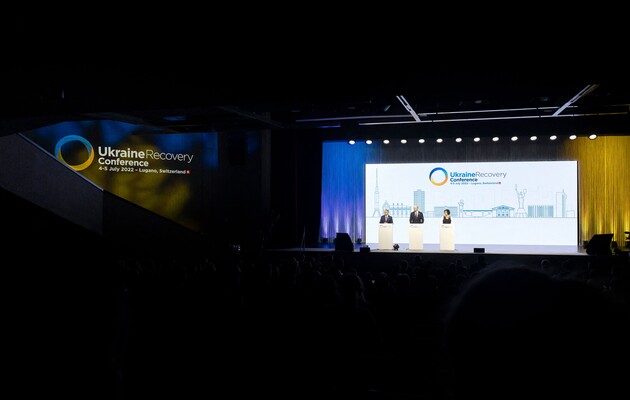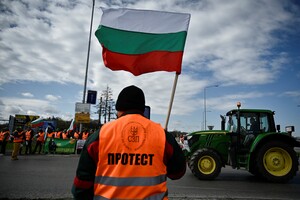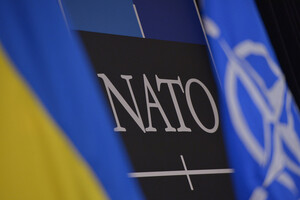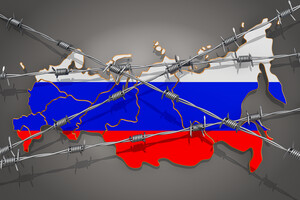From Failure in Lugano to Ukrainian Breakthrough-2

In the previous article, we tried to understand the reasons of the failure of the donor conference in Lugano last year.
But how not to miss the new chance that we will get at the next conference in London in June this year? How to turn the restoration of Ukraine into the largest project the world has seen over the last 80 years, especially since many potential investors and current politicians call Ukraine The Next Big Thing for Europe and the world?
The formula for the restoration of Ukraine
Let me start by saying that back in May 2022, Vlad Rashkovan from the IMF organized a Reconstruction Forum on the platform of the London School of Economics, to which he invited representatives of almost all key donors, leaders of the economic authorities, Ukrainian and international experts and representatives of business associations. The forum was productive. During it, basic solutions were worked out, which should become the basis for working on the Recovery Plan. These decisions were as follows:
- Start now. That is, it is necessary to begin the restoration of Ukraine without waiting for the day of Ukraine’s victory over the aggressor (in any acceptable format). Accordingly, funding of the restoration by our partners should begin urgently.
- Modernization, not restoration. I will explain this idea below, but the main thing is that there is no point in restoring the old, and Ukraine can count on Western help in implementing radical changes and breakthroughs. The West is not afraid of possible competition from Ukraine for investments, business and talent.
- Ukraine’s leadership is in setting out its own vision, determining modernization priorities and forming the architecture of the distribution of financial aid.
- Inclusiveness is the involvement of civil society, including Ukrainian business, both in the planning of modernization and in its implementation.
But all this was not taken into account in the work of the National Recovery Council. What is more, everything was done the other way around, which we considered in detail in the previous article.
How not to repeat mistakes in the process of preparing for the conference in London in June 2023
First, we must return to the issue of the Ukrainian vision in the global context. As Shimon Peres said in Kyiv, “Dream big.”
Until the commanding role belongs to those seeking to preserve the existing system, think tanks that sing along to the authorities, economic extrapolators (looking at the past and cases, and not model management scenarios “from the future”) and anti-crisis dirigiste-like officials, we are not going to move forward.
What are our key challenges?
- War. Our victory must be based on the best possible scenario. However, the war is not the reason for the lack of investment. In 2021, 2019 and 2012, it was insufficient. And even now it is possible to request larger volumes of war risk insurance from our partners for international investors.
- Low level of rights protection — both property and intellectual. Raiding. Dishonest courts and a high level of corruption. Arbitrariness of security agencies in the economy.
- Low level of economic freedom. Inadequate customs and tax systems. Excessive regulation. By the way, this is the true cause of corruption.
- Low level of economic complexity. We have a raw material economy not only in chemical industry, agriculture and metallurgy, but also to an even greater extent in the IT sphere. We are faced with both the low level of processing and the low added value of products that are exported, as opposed to imported ones (with the possible exception of energy). Thus, investment must be channeled into the development of processing export-oriented industries.
- Depopulation. And de-professionalization of economic sectors due to labor emigration and the low quality of vocational education.
- Low labor productivity, outdated technologies (here, too, it is important to talk about the modernization of production and digitalization of the economy — the modeling in the National Economic Strategy clearly testified to this).
The potential of the Ukrainian economy is five times higher than before the war. In all our “golden times” (such as 2002–2007), we “ate away” economic growth, converting it into imports of goods and buying up real estate instead of investment in development.
But a new “golden age” will come with our victory – provided that we do not turn it into an economic defeat again.
So, it is time to turn to the world’s futurists, progressive economists, leaders of modern agro- and foodtech, fintech, 3D printing, experts in security, new energy and construction technologies, advanced architectural bureaus — and offer Ukraine as an open startup country for creating real breakthroughs. If we are late with modernity, then postmodernity will be born in Ukraine. The most advanced logistics, a true zone of the world’s food security, a new social contract and the first infographic Constitution, an Asia-Europe logistics hub within 24-hour distance to any European market – groundbreaking realistic ideas that inspire us and the whole world and should become the basis of the Recovery Plan and modernization of Ukraine.
Secondly, Ukraine must declare itself as a global entity. Membership in NATO, the new Yalta, the League of Nations 3.0, the new architecture of global security, Intermarium/Three Seas — Ukraine must take the lead everywhere. As long as the president’s team focuses on current issues, we will lose.
Yes, unfortunately, there has been no strategizing in the state as an institution and thought during all the years of independence. But this can and should be changed. In particular, through the performance of the third task.
Thirdly, both our international partners and the government authorities should recognize the need to expand the range of entities that have a stake in the Recovery and Modernization Plan of Ukraine.
International business must be added to the formula. It is the source of $600–800 billion, which Ukraine is going to need in the next 7–10 years. This amount includes not only the help of our partners and (hopefully) frozen Russian assets, but primarily private investments. Investment insurance, NATO membership and security guarantees are a necessary, but not sufficient, way forward.
It is also important to involve a consolidated civil society, including businesses united in a coalition. By the way, on May 30–31, the Civil Society Forum will be held, and in early June, the Forum of the Coalition of Business Communities for the Modernization of Ukraine will take place, during which it is expected that a unified position will be formed regarding Ukraine’s vision, the principles of creating state policies and the Recovery and Modernization Plan of Ukraine.
Nonetheless, all this may turn out to be temporary! The fears of political authorities and Poroshenko's specter behind every action of civil society force it to ignore or vulgarize non-governmental organizations, creating its own fake NGOs and dealing only with Western business associations.Fourth, agreement must be reached on the architecture and institutionalization of financing and implementation of the plans. During the time that passed after the conference in Lugano, there was practically no rapprochement of positions between the Ukrainian authorities and international partners. The latter are waiting for a clear action plan and a transparent architecture of the financing system. Instead they are offered the same tools: an agency based on Ukravtodor and the Ministry of Finance. So, we could make significant progress on the eve of the conference, but we still did not agree on the necessary infrastructure.
Fifth, take into account that international business is invested where local, national business is actively working and where it is safe. Where there is a system of trust and economic growth. Where there are economic freedoms and an attractive business environment. A developed stock market. Where demand is growing and demographic problems have been solved. And if the national business is dissatisfied with the poor business climate and is disinvesting, this is the most negative signal that cannot be overruled by government statements. International investors are scared not so much by war, but by unpredictability and non-transparency, corruption and weak protection of rights.
Ahead of the big conference in London, we – both the government and society – need to do our “homework”: establish cooperation, agree on a vision and at least a high-level action plan for reconstruction and modernization, including the Rapid Recovery Program.
International partners expect Ukraine to present both solutions at the level of state policies and specific project solutions in key areas. They expect that it will offer a transparent and inclusive architecture for financing and administering plans whilst also fulfilling its obligations regarding judicial and anti-corruption reforms. The goal of the process, in which the conference in London is another link, is to create such a system that will enable the search, accumulation and receipt of financial resources and their spending for the benefit of the people of Ukraine and the common good of us and our strategic partners.
Otherwise, justified hundreds of billions in aid and investment will remain hopes, and Ukraine will receive coverage of the state budget deficit only during hostilities.
Please select it with the mouse and press Ctrl+Enter or Submit a bug
















 Login with Google
Login with Google